|
14th May 2022 It's a Saturday and I'm in Aldershot after a impromptu get together with some friends. Flip City AKA Design Town is a light and uncomplicated push-your-luck deck building game about developing a city. What's in a game?
The cards are all the standard quality you'd expect from a card game. The game uses brightly coloured stylised art throughout and I always like this kind of artwork and I think it looks good here. additionally, the cards can be placed next to each to make a city landscape. Yes, it's unnecessary but it's a nice touch and shows some extra thought has gone into the presentation. Flip City uses some iconography, but all of it is clear and easily learned or understood. How's it play? Setup
On to play Each's active player's turn will consist of up to 2 phases, a play cards phase in which they play as many cards as they want or go bust and a buying phase.
Endgame Play continues until 1 of 2 winning criteria is met.
Overall
Flip City describes itself as a microdeckbuilder and it's not really wrong. Most deck-builders come with a supply-market of 10 card types or so but Flip City makes do with 4 types (5 if you include the micro-expansion), although they are double-sided, so there are actually 10 types of card. Even so, it's a very compact feeling game. For me however, where Flip City differentiates itself from other games of its kind is the implementation of a push-your-luck mechanic. It works well here, especially in conjunction with meeting the winning conditions, essentially forcing players to continue drawing cards and pushing their luck until they either have 8 VPs or 18 cards in play. As a result, Flip City is a little different to many deck-builders, which at their core are more-or-less about creating cash-generating engines to purchase cards that will earn them more cash during the early-game or VPs during late-game play. In Flip City, generating cash is still important because it allows players to acquire more cards but some of those cards will have to work towards being able to draw 8 VPs or 18 cards. Flip City is a quirky, charming, fairly light and quick to play pocket-sized deck-builder that presents players with some meaningful paths to winning and choices as well as some unusual game play and a nice little risk-and-reward mechanic. Given it's light nature, I'm not sure how the game will hold up to repeated play but that's sort of missing the point. This is a fun filler game that is good to ply every once in a while. It's worth a try and if deck-builders are you thing, then this will probably appeal to you.
0 Comments
Leave a Reply. |
AuthorI play, I paint. Archives
March 2024
Categories
All
|

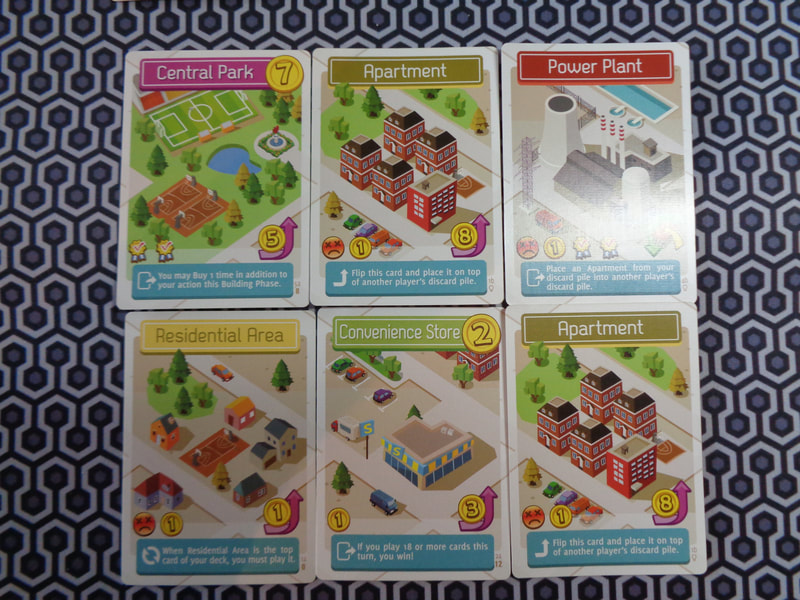
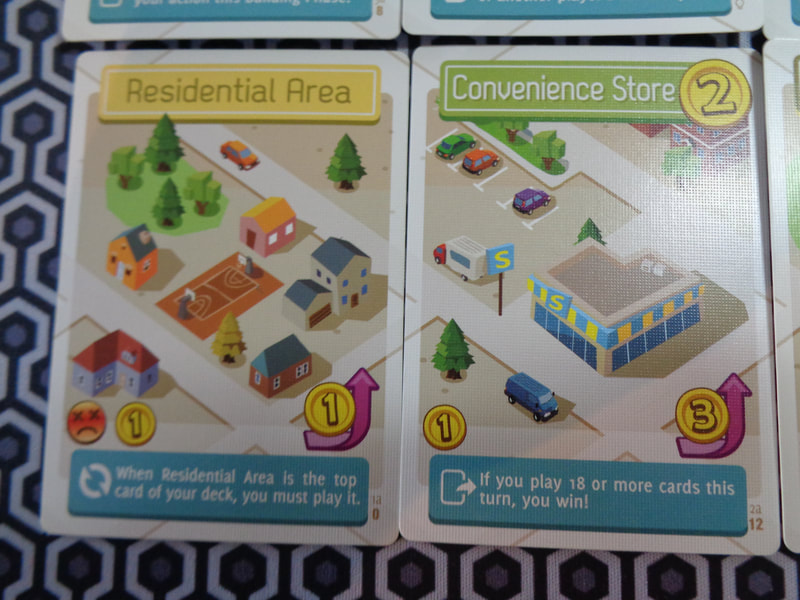
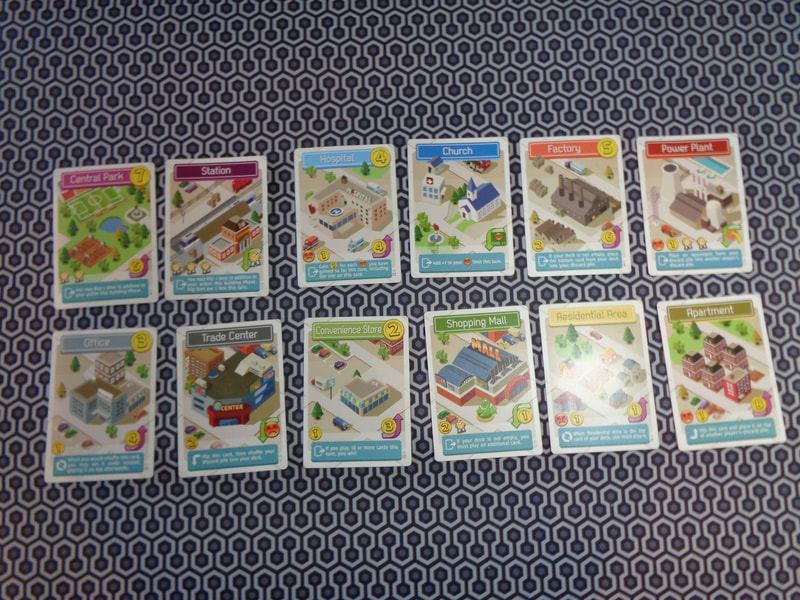
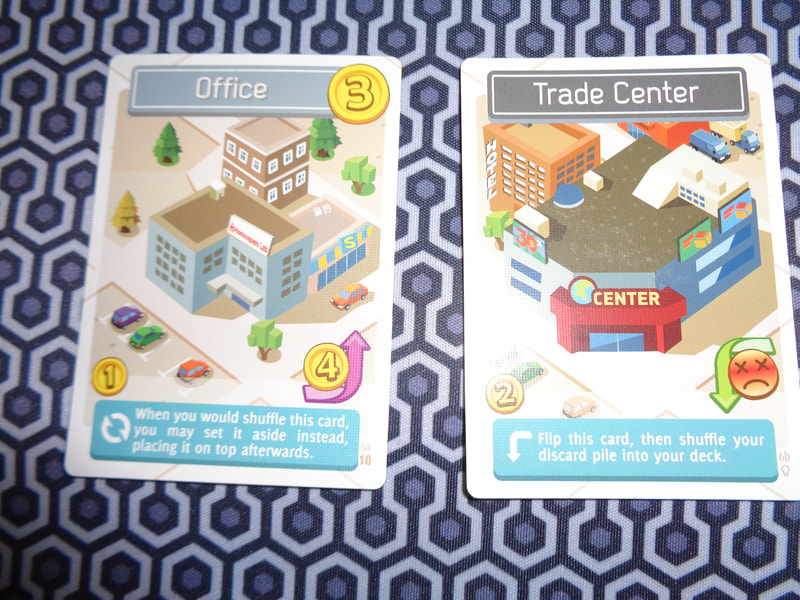
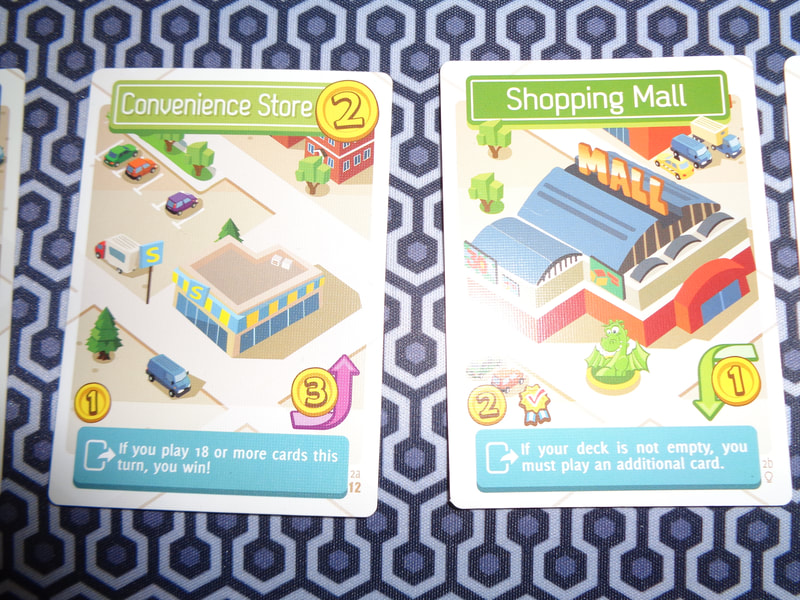
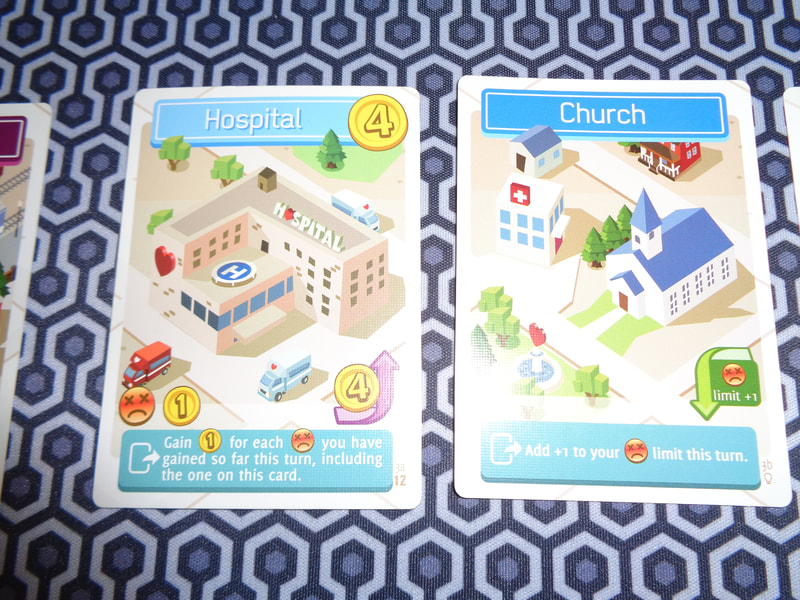
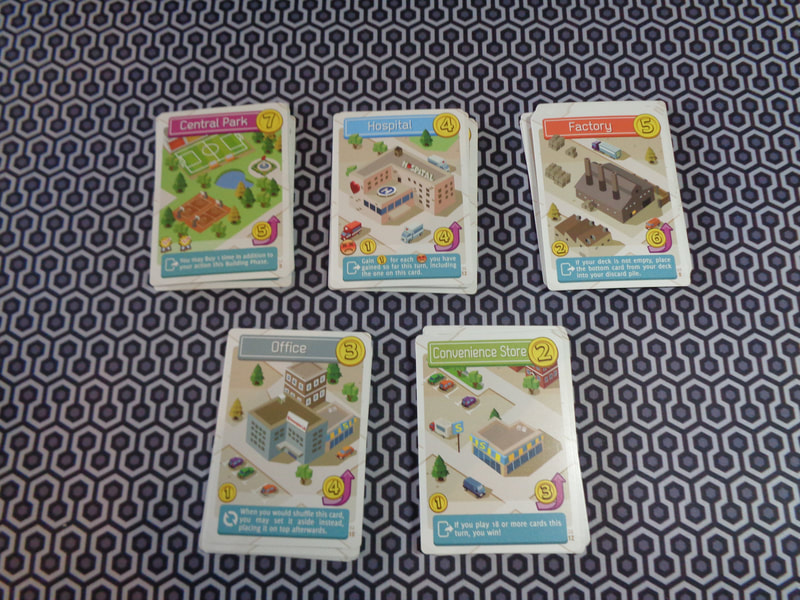
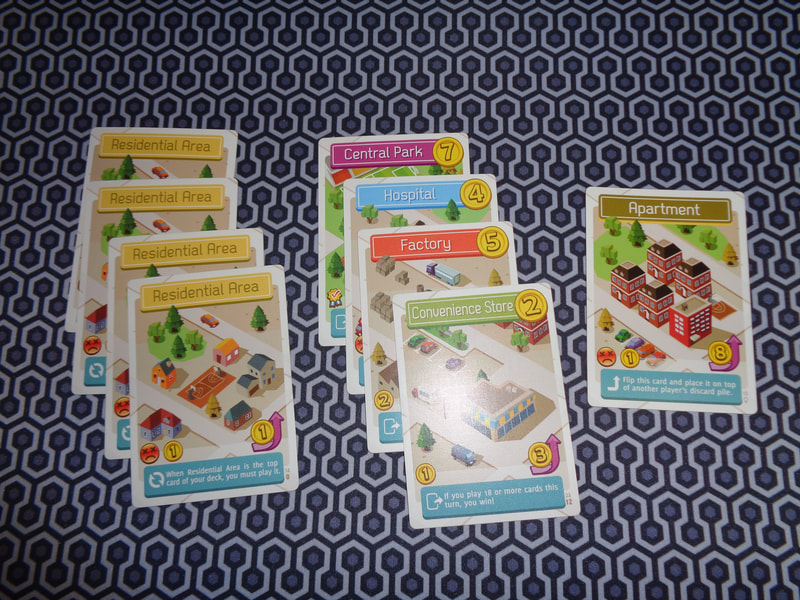
 RSS Feed
RSS Feed
